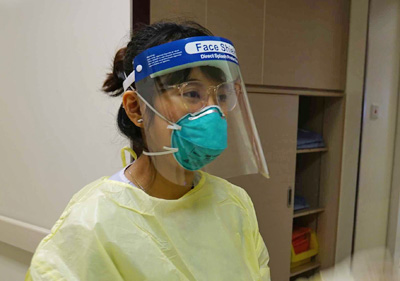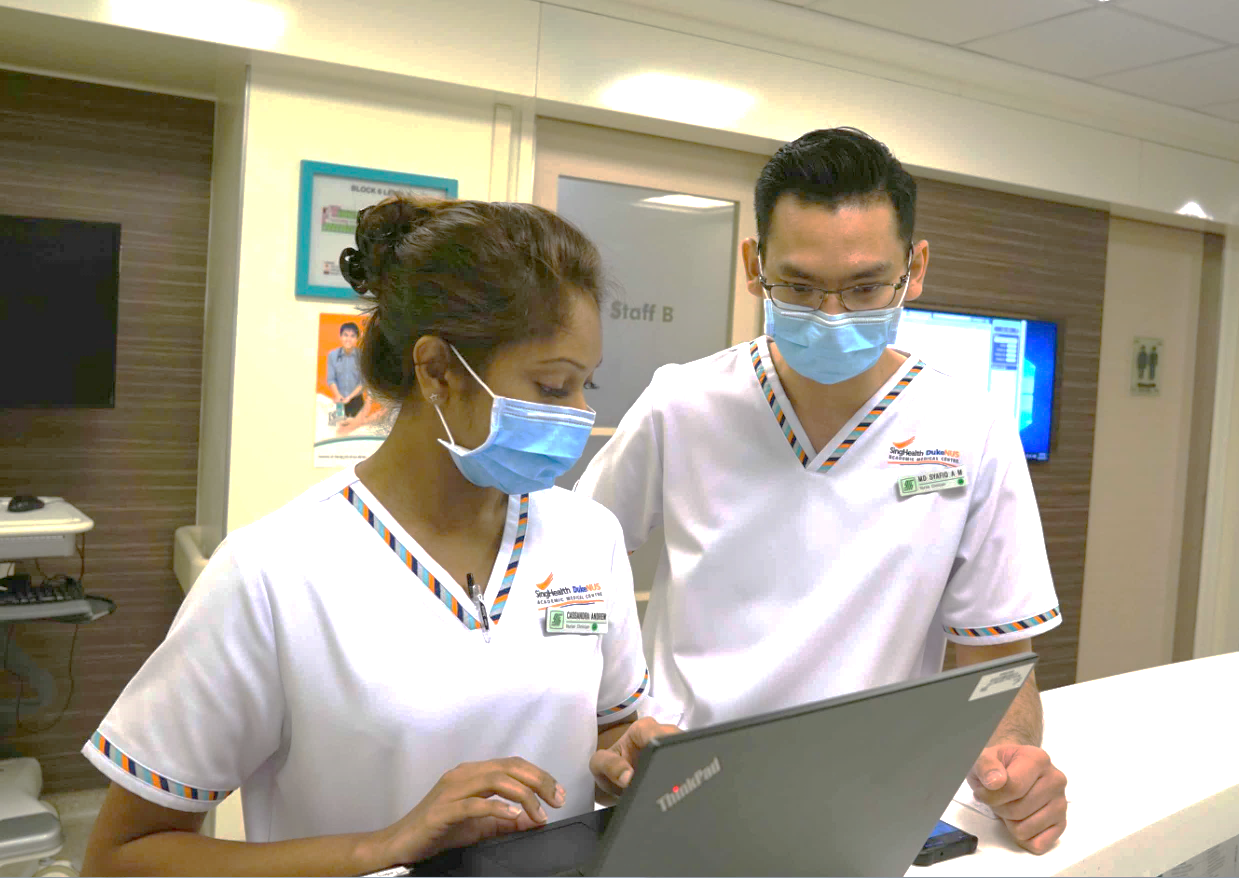For two months, our Isolation Ward 68 nurses have been caring for suspect and confirmed COVID-19 patients, keeping them comfortable as they recover and also providing the appropriate care should their condition deteriorate. By keeping these patients apart from other patients, our staff and the public, Ward 68 also prevents the disease from spreading. Muhammad Syafiq Abdul Manaf, a Nurse Clinician at Isolation Ward 68 for five years, reveals what it is like to work alongside COVID-19.
What is it like working in Ward 68 during these COVID-19 times?
We have to be extra vigilant to protect ourselves from getting infected. For example, we practise the ‘buddy system’. When a colleague enters an isolation room, the ‘buddy’ watches from outside the glass doors serving as a second pair of eyes and calls out any actions that may contribute to a possibility of cross contamination. This is necessary because it is difficult to concentrate when working in full Personal Protective Equipment (PPE) gear, which is very uncomfortable. It is harder to breathe in an N95 mask, and difficult to see because with a face shield on we have a limited field of vision.
Every day, I have to take stock of our PPE. It may seem trivial but it is very important that my colleagues have the protective gear they need to ensure their safety when they come into contact with patients. Usually I only had to place orders once a week. Now, I have to do this daily.

Prior to entering the patient’s room, our nurse dons a face shield as part of her PPE to prevent the COVID-19 virus from entering her mouth, nose and eyes if the patient coughs or sneezes.
How is the Isolation Ward team doing?
The group of nurses who care for the confirmed cases do get scared. I can see from their facial expressions or other non-verbal cues. For example, a colleague who is usually jovial may become reserved.
To help these colleagues cope with their fear and anxiety, I will let them rest by bringing forward their day-off, getting another colleague to do a swop, so that they can disengage from work and recharge mentally. I also lend a listening ear during breaks and even after work.
It's normal to feel stressed, confused and scared during a crisis. We have become more focused and vigilant in our infection control practices as a result.
And yourself?
As their leader, I can’t show that I am tired because I have to be a pillar of strength for my team. There were times when I reached my stress limit, for example, when there are many revisions to the workflow due to updates to the Routine Instructions. I will go wash my face and relax for a few minutes before resuming my duties.

NC Syafiq oversees the roster, which changes from day to day to ensure Ward 68 is always adequately staffed during this period.
How do you decompress?
Just seeing my two kids helps me to forget my stress. My wife has told my 3-year-old son, “Daddy comes home late because he has to fight the virus.” So when I come home, he always asks, “Daddy, you fight virus. Virus die already?”
Watch NC Syafiq share more about his work here (internet access required)
https://www.google.com/amp/www.asiaone.com/singapore/google-translate-saves-day-sgh-nurse-opens-about-frontline-struggles%3famp
We love mail! Drop us a note at [email protected] to tell us what you like or didn’t like about this story, and what you would like to see more of in LighterNotes.
